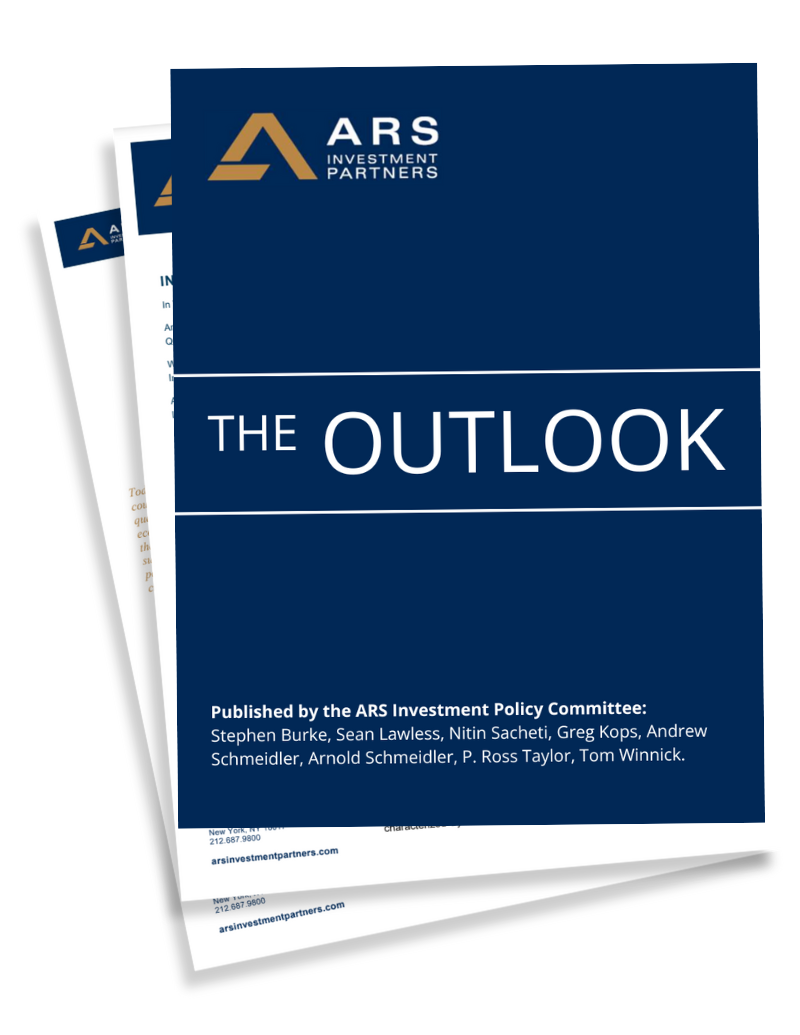Please download the slides above.
Month: April 2022
Everything’s Changed
Download Outlook Now
The World at a Historic Inflection Point
We are living in unprecedented times. As the world navigates through the remnants of a global pandemic, it now faces a new and devastating challenge—the war in Ukraine. This conflict has reshaped the geopolitical and economic landscapes, presenting new realities that demand our immediate attention and action.

Executive Summary
We are heartbroken by the ongoing situation in Ukraine. The remarkable leadership of President Zelensky and the courage of the Ukrainian people continue to inspire the global community. Their fight for freedom serves as a stark reminder of its high cost—a cost many of us often overlook.
This conflict emerged at a critical juncture for the global economy, already grappling with the fallout from a pandemic-induced contraction, surging inflation, and heightened uncertainty. The war has exacerbated these challenges, impacting the most vulnerable populations in fragile regions. The extent to which this conflict reshapes the global economic landscape remains uncertain and heavily contingent on future developments.
This Outlook explores the direct and cascading effects of the war across various economic sectors and regions. It underscores the immediate need for strategic recalibration in response to shifting global economic dynamics, with significant implications for investment and policy decisions.
Outlook Highlights
Global Economic Impact
The conflict has intensified existing uncertainties, slowing down the recovery process and exacerbating inflation across the globe. The most profound economic burdens will fall on Ukraine and Russia, followed by the world’s most economically vulnerable nations.
Investment Shifts
The current situation demands a reassessment of investment strategies. Historical low interest rates and favorable policies are being replaced by an era of higher inflation and slower growth, requiring a shift to more resilient investment opportunities.
Strategic Adjustments
In response to the crisis, there has been a noticeable shift in global capital flows. Investors and nations alike are reevaluating their economic and security strategies to mitigate future risks and safeguard their economic interests.
Long-term Economic Forecasts
The long-term impact of the war is still uncertain, with potential lasting effects on global trade, energy supplies, and economic alliances. This uncertainty underscores the importance of strategic flexibility and forward-thinking in policy and investment decisions.
Our Perspective
The war in Ukraine is reshaping the world in profound ways. As ARS Investment Partners, we remain steadfast in our commitment to navigating these turbulent times through our proven investment philosophy. This approach combines macro-economic analysis and fundamental company research to anticipate shifts in the global economic landscape and position our investments accordingly. Our focus is on identifying and capitalizing on the secular themes that will define the future economic order.
Disclaimer
The information provided in this report is for informational purposes only and is not intended as investment advice, or an offer or solicitation for the purchase or sale of any financial instrument. This report is provided on the condition that it does not form a primary basis for any investment decisions. The opinions and analyses included in this report are based on current market conditions and are subject to change. ARS Investment Partners, LLC will not be responsible for any investment decisions based on this report. Please consult with a qualified financial advisor before making any investment decisions.
Want More of The Outlook?
Sign up to receive The Outlook — our timely newsletter featuring our investment and economic thinking — and highlights from our latest market insights will be emailed directly to your inbox.









